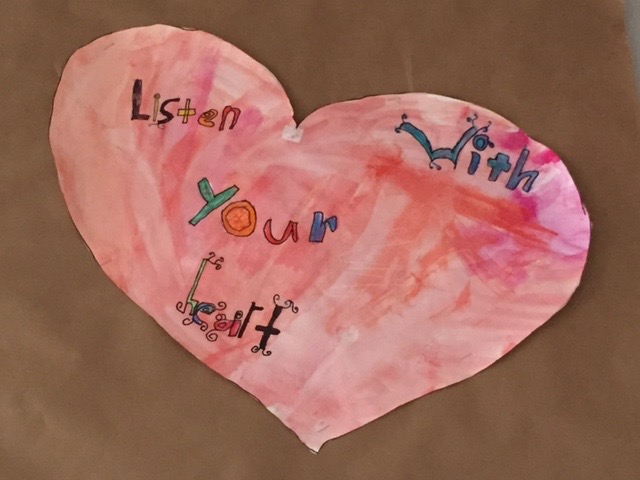Earlier this month we attended an evening presentation by Debbie Leekeenan on Anti-Bias Education. This event was part of a series of professional development opportunities offered every year by the Boston Area Reggio Inspired Network (BARIN). Debbie is a leader in the field of Anti-Bias Education and had written most recently, with John Nimmo and Louise Derman-Sparks, Leading Anti Bias Early Education Programs. The evening provided a place for all of us to consider what it means to create schools and environments where every single person is honored, welcomed and a part of the whole. We listened to Debbie share her varied and rich experiences and perspectives and we worked with challenging scenarios in small groups.
An anti-bias program puts diversity and equity goals at the center of all aspects of its organization and daily life. Systemic change requires a leader who takes an intentional and strategic approach.
In today's world, post election, where groups are being targeted and the world feels more volatile and scary for many, this message and these ways of being with children and families are more important than ever. Debbie shared this pledge written and distributed by the Child Care Exchange which you can download here.
ANTI-BIAS EDUCATION
EXCHANGE MARCH/APRIL 2017
www.ChildCareExchange.com
All Children Belong Here This is Our Promise to You
•We will build an open, safe, and mutually respectful school community in which each child and each family is an important and equal member.
•We will never allow differences of any kind to be an excuse to make fun of, exclude, or hurt you.
•We will listen carefully and lovingly to what worries you and give you thoughtful, age-appropriate information and support.
•We will nurture you to feel strong and proud about yourself and your family.
•We will facilitate your skills to be friends with classmates who are alike and different from you.
•We will honor your family’s importance to you by building respectful partnerships with them.
•We will provide support to you and your family when they feel stress, anxiety, or fear because of current events or acts of prejudice or hate.
•We will learn about and help your family use legal and community resources to keep you safe.
•We will work to uproot our own personal biases as adults and will speak out against prejudice and bias wherever we encounter it.
•We will mobilize our courage and become active with others to resist and change any policies and practices that threaten to hurt you or your family.
Debbie concluded the evening with these words which we read often and hold dear:
We are all in this together — working for a world where every child is protected and honored, exactly as they are. We have the responsibility and the opportunity to be proactive in how we support our children and families during these challenging times. Take the long view. Be optimistic. Model resiliency. We need to hold the light.
*images and student work from Buckingham Browne & Nichols School in Cambridge, MA.













 Today it is snowing... still, after snowing all day yesterday and all through last night. We have a foot and a half of soft, white, peaceful snow. This morning as I was catching up on things at my desk I read an article in our local paper from last week, The
Today it is snowing... still, after snowing all day yesterday and all through last night. We have a foot and a half of soft, white, peaceful snow. This morning as I was catching up on things at my desk I read an article in our local paper from last week, The 


